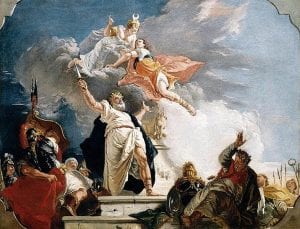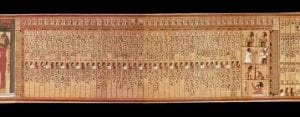The Enchiridion (literally, “The Handbook”), written by eminent stoic philosopher, Epictetus, challenged my uninformed assumptions about Stoicism as a school of thought, but not by much. The work is separated into 52 chapters that range in length from one to several paragraphs, but rarely more than a page, each containing a concise nugget of wisdom. The topics of these chapters are variations on a theme organized around the central theme that if it is part of you, you can and should control it, if it is not part of you, you cannot and should not try to control it.
Here, “part of you” includes your opinions, aims, emotions, desires, and aversions, all else is “beyond your power,” including your sickness or health, your property, and your reputation. One should endeavor to exercise complete control over everything within their power. Many of the examples are given as a duality of sorts, first presenting the external force that one would typically react to, then explaining why that reaction is damaging and one should instead look inward. If another insults you, it is not their insults that hurt you, but your reaction to those insults that hurts you; in other words, if you shrug off someone’s insults, they inflict nothing upon you.
Epictetus’s advice isn’t necessarily easy to follow, for example, I would completely avoid his advice to avoid endeavors to excite laughter, “for this may readily slide you into vulgarity.” More examples of controlling one’s emotions are to react when your favorite cup breaks as if a stranger had told you that their favorite cup had broken. The same piece of advice is blithely given regarding the death of a wife or child. This is all after Epictetus has said that if you see someone mourning, you may join them in order to comfort if you feel compelled, but do not take on any of their suffering as your own.
All of this is meant to lead to a life wherein a stoic, because of their rejection of seeking pleasure or accepting pain from the external world, is able to see what needs to be done and do it without growing emotional. As I’m writing this the example that comes to mind are the robots in Asimov’s “I, Robot”. (spoilers) The robots realized that in order to protect humanity from doing damage to themselves, they would have to take control from humanity. They declared war on humans and waged it without anger or fear in order to serve what they saw as the greater good. I wonder what Epictetus would have thought.







